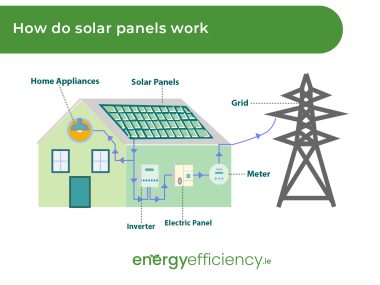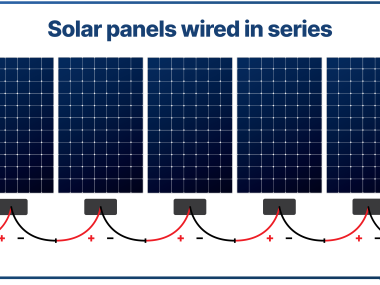- As the global community steers toward a more sustainable future, the imperative of transitioning to clean energy has become increasingly apparent.
- Among the array of renewable energy sources, solar energy has emerged as a major catalyst in the drive to decarbonize the economy. Indeed, it is rapidly evolving into an indispensable component of the energy portfolio for significant power consumers, such as manufacturing plants, storage facilities, and commercial complexes. The incorporation of renewable energy into the operational frameworks of these large-scale energy consumers is an inevitable stride toward attaining the Net Zero objective by 2050 and achieving emission equilibrium within the power grid by 2035. This transition not only aligns with sustainability goals but also holds substantial economic merit.
- Warehouse proprietors, lessees, and industry associations wield considerable influence in advancing the solar energy market in developed countries.
Let’s delve deeper and uncover the genuine capacity of solar energy within these sectors.
Factories
Warehouses
Shopping Centres
Also, Solar energy can be used for large-scale industrial applications in various ways
Certainly! Solar energy can indeed be harnessed for large-scale industrial applications. Here’s how:
Utility-Scale Solar Power Plants:
These are expansive solar power facilities that convert sunlight into electricity using photovoltaic (PV) panels or concentrated solar power (CSP) systems. These plants have capacities ranging from tens of megawatts to hundreds or even gigawatts. They supply electricity to the grid, catering to the energy demands of industries, businesses, and residential consumers alike.
Industrial Process Heat:
Solar thermal technologies can provide heat for a variety of industrial processes, including water heating, space heating, and steam generation. Concentrated solar power (CSP) systems, in particular, are capable of producing high-temperature heat suitable for industrial applications. Industries such as food processing, chemical manufacturing, and textile production can benefit from solar process heat.
Solar-Powered Desalination Plants:
Desalination involves removing salt and other minerals from seawater to produce freshwater. Solar energy can power desalination plants, particularly in regions abundant in sunlight but lacking freshwater resources. Solar desalination presents a sustainable solution to address water scarcity challenges in industrial sectors like agriculture, manufacturing, and mining.
Solar-Powered Industrial Parks:
Some areas are establishing industrial parks powered entirely by solar energy. These parks integrate various industries, including manufacturing, warehousing, and logistics, with on-site solar power generation to meet their energy needs sustainably.
Solar-Powered Mining Operations:
Mining companies are increasingly adopting solar energy to power their operations, encompassing ore processing, ventilation systems, and lighting. Solar energy diminishes reliance on diesel generators in remote mining sites, resulting in cost savings and environmental benefits.
Solar-Powered Agriculture:
Solar energy can support large-scale agricultural operations by supplying electricity for irrigation systems, crop drying, and greenhouse heating. Solar-powered irrigation pumps, in particular, offer a sustainable solution to enhance agricultural productivity in remote areas.
- Overall, solar energy holds significant potential for powering large-scale industrial applications, offering clean, renewable energy alternatives while mitigating carbon emissions and reducing dependency on fossil fuels.












